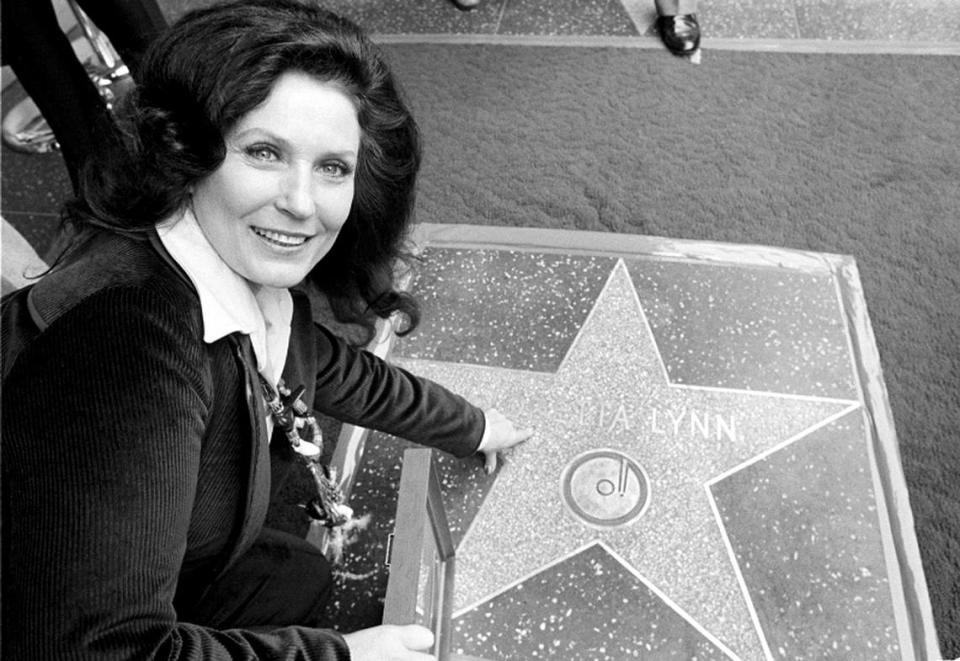Loretta Lynn, pride of Butcher Hollow, redefined women’s roles in and out of country music
Loretta Lynn’s management made it clear. I had exactly 15 minutes to speak with her for a phone interview ahead of a 2001 performance at Renfro Valley.
Ever vigilant, I watched the clock, adhered to the time limit and thanked her for speaking with me. She sounded befuddled as to why I was ending the conversation so suddenly. I explained we had used up all our allotted time and had to sign off.
“Who says?” she replied, following her query with a quick and hearty laugh. We gabbed for another 20 minutes.
Taking command. Loretta Lynn was good at that.
A regal and inspirational figure in the world of country music? Of course, she was. There isn’t a country singer famous or unknown who doesn’t owe a sizable chunk of their artistic soul to Lynn. The smart ones — the Rebas, the Dollys, the Margo Prices — proudly proclaim her influence. But Lynn was so much more than that.
The pride of Butcher Hollow redefined forever the role, and especially the power, of women in all corners of the entertainment industry. Frankly, it’s not overstating the case to claim women who have struggled to balance their sense of identity, worth and strength in work and home environments are indebted.
The boldness of her beliefs and character were right there in her songs: “You Ain’t Woman Enough,” “Don’t Come a-Drinkin’,” “The Pill,” “One’s on the Way” and seemingly countless others. Before Lynn, no singer in or out of country music would have ever dared to sing these songs and express their themes.

Of all her hits, the one that still strikes the most profound chord for me is 1968’s “Fist City.” No, it’s not a confession of abuse. It’s a square off between two women and the man between them. The song is offered from a view where the woman is the breadwinner and the man a rover easily tempted from marital and familial ties. Every time I saw Lynn as a kid singing the song on television over a cheery country melody, she had a bold but slightly cunning smile on her face. Of course, the lyrics were all about wiping the smile off of someone else’s face.
“If you get to cute or witty, you better move your feet,” Lynn sang, “if you don’t wanna eata meal that’s called fist city.”
So was Lynn a rebel? Absolutely, but she held fast to tradition and family, too. Revolution is pointless without something to defend. In Lynn’s case, that meant family and faith. That’s why the rural reflection within the signature tune “Coal Miner’s Daughter” is so profound and why her role as a wife and mother was every bit as heroic and important as her presence as an artist and celebrity.
“Growing up, my mom didn’t come off the road with a guitar on her back and songs in her hand,” Lynn’s daughter, Patsy Lynn Russell, told me in an interview last year. “She never did that. Music was not a part of our lives, in our home, to that degree because my mom felt that was her job. As much as she loved being out on the road and being Loretta Lynn and performing and writing, she knew it took her away from her family. So we never saw my mom in that creative light. We saw her walking in the door and planning what to cook for dinner. My mom’s lifestyle has never outgrown her in any way. This woman still makes us peel the labels off mayonnaise jars before putting them in the dishwasher.’
The real measure of an artist’s legacy come from ripple effects, the visible instances of a successive generation not only carrying the torch of a beloved artist’s influence, but doing so in ways that freshen the purpose and perspective of the music involved.
You heard when Jack White brought a 21st century audience to Lynn by producing her 2004 album “Van Lear Rose” (and especially when he and Lynn famously sang of the joys in sharing sloe gin fizz on the record’s second single “Portland, Oregon”). It’s equally obvious in the renaissance series of recordings released since 2016 that feature fresh recordings of new and vintage Lynn songs co-produced by Russell and John Carter Cash. Viewed collectively, the albums present a mighty victory lap for Lynn’s storied career and an astonishing testament to its artistic reach.
“My mom is what we call ‘that singer,’” Russell said. “I don’t know if that comes from standing out on the porch and singing down the holler, but her voice is just so powerful. She may not have the power (in 2021) she had when she was 50 or 30, but her voice is still so big that my mom could probably out-sing 99% of the singers out there 20 years younger than her.”

 Yahoo Movies
Yahoo Movies 
